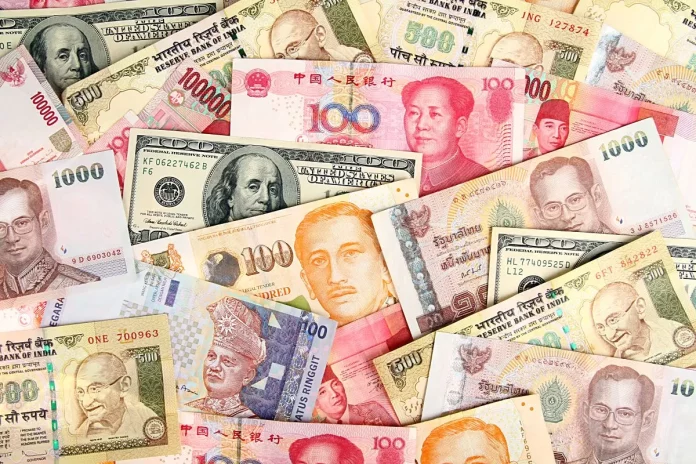Most Asian currencies were muted on Wednesday, as the dollar gained ground after the latest jobs data from the United States indicated a cooling labour market, while traders awaited more economic data to assess the prospects for rate cuts by the Federal Reserve.
Data on Tuesday showed US job openings fell to a more than 2-1/2-year low in October, signalling that aggressive rate hikes have started to flow through the economy, Reuters reported.
Additional labour data releases from the US, including the closely watched non-farm payrolls report due later in the week, are likely to give investors better clarity on where rates could be headed into 2024.
“The fact that central banks (globally) are on the same page regarding the direction of monetary policy amid a softer growth outlook, suggests that their currencies are more likely to consolidate than trend in either direction,” analysts from DBS said in a note.
At 0700 GMT, the dollar index — which measures the strength of the greenback against six major currencies — was hovering near a two-week high of 103.98.
Malaysia’s ringgit fell as much as 0.3%, tracking broad dollar gains and a slump in crude oil prices, while investors assessed the impact of Opec+ production cuts.
The South Korean won, the Indonesian rupiah, the Singaporean dollar and the Taiwanese dollar traded flat to slightly lower, although Thailand’s baht edged up more than 0.2%.
Taiwan is set to release inflation data later on Wednesday, while Thailand’s CPI data will be announced on Thursday, providing additional clues for central bank policy rates.
Separately, India is set to conclude its monetary policy meeting later this week, where its central bank is expected to hold rates. The Indian rupee was also flat, even as stocks in Mumbai advanced to fresh record highs.
Chinese stocks were muted after slumping as much as 1.7% in the previous session while the yuan inched lower to hit a two-week low, a day after ratings agency Moody’s lowered China’s government credit outlook to “negative”.
“Moody’s downgrade of China outlook to negative from stable is further spooking debt concerns, and adding to the headwinds for the Chinese economy and pushing investors away, despite the cheap valuation,” analysts from Saxo Markets wrote.
Among other Asian equities, stocks in Thailand rose 0.7% and Taiwan was up 0.2%, while Singapore, South Korea, Philippines and Malaysia traded between flat and 0.5% lower.









